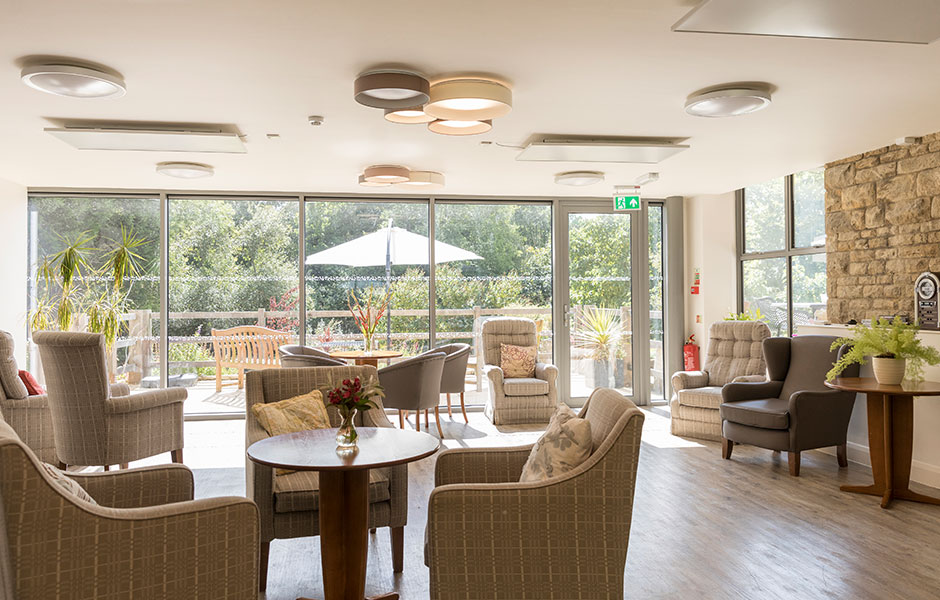Our strategy is to identify new healthcare properties and tenants who will diversify our portfolio and deliver strong economies of scale, with efficient operations alongside a good quality of care. We look for investments that, under our ownership, will provide value for money to our tenants’ customers and residents, while delivering attractive and stable returns to our investors for the long term.
We aim to provide shareholders with attractive and sustainable returns, primarily in the form of quarterly dividends, while also generating growth in net asset values over the medium-term.
To achieve our value-creation objectives, we:
Our investment policy (see below) allows us to invest in a broad range of healthcare real estate assets. The market dynamics described in Our Market underline that the care home sector currently offers the most attractive opportunities for the Group. Our investment strategy is, therefore, to primarily acquire care homes, while continuing to broaden the range of tenants we work with, thus reducing our exposure to any one tenant.
We mainly look to acquire portfolios, which helps us to maximise value. These portfolios may include healthcare real estate assets in addition to care homes. We will acquire these where they have a future strategic opportunity to deliver care home services, or where we are confident we can deliver value in the short-term for our shareholders, as part of our portfolio management activities.
We categorise each of our assets into one of three categories – core, value add and non-core. This enables us to manage appropriately the balance between these categories, so we deliver our target returns, and to identify the assets which can benefit from our approach to active asset management (see below).
A hands-on asset management strategy helps to enhance shareholder returns over the longer term while helping to mitigate risk. To deliver our target long-term shareholder returns, our asset management strategy prioritises investment in our value-add portfolio and in projects that enhance the sustainability of our assets, including those that improve the quality of the environment for residents and the sustainability of the home, while extending the useful economic life of the property.
We fund our business through equity and a prudent level of debt. In doing so we look to minimise the effects of ‘cash drag’ on our earnings per share, which is the effect of issuing equity and holding the cash raised on the balance sheet, ahead of investing it in income-producing assets.
Our conservative gearing policy is to have a maximum Group loan-to-value ratio of 35% at the time of drawdown. Our approach to hedging and debt is designed to prudently maximise the return to shareholders while mitigating the long-term risk from interest-rate fluctuations.
The Company’s investment policy is to acquire, own, lease, renovate, extend and redevelop high quality, Healthcare Real Estate Assets in the UK, in particular residential care homes and to lease those assets to care home operators and other healthcare service providers under full repairing and insuring leases.
The Company will continue to pursue its investment policy as follows:
The Group will be permitted to generate up to 15% of its gross income in any financial year from non-rental revenue or profit related payments from Tenants, in addition to the rental income due under the leases.
In addition, the Group is also permitted to invest up to:
The Group may also acquire or establish companies, funds or other SPVs which themselves own assets falling within the Company’s investment policy.
The Group will not acquire any asset or enter into any lease or related agreement if that would result in a breach of the conditions applying to the Company to hold REIT status. In addition, the Group will not acquire any asset, or enter into any lease or related agreement in assets, located outside of the U.K.
The Company may invest cash held for working capital purposes and awaiting investment in cash deposits, gilts and money market funds. It will not invest in derivatives but it may use derivatives for hedging purposes.
Gearing, calculated as borrowings as a percentage of the Group’s Gross Assets (including any borrowings incurred by any joint ventures or indirect property investment funds through which the Company may invest), may not exceed 35% at the time of drawdown.
The directors do not currently intend to propose any material changes to the Company’s investment policy, save in the case of exceptional or unforeseen circumstances. Any material change to the investment policy of the Company will be made only with the approval of shareholders.

Freeland House, Oxfordshire, one of the 56 care homes that formed the Seed Portfolio acquired in May 2017